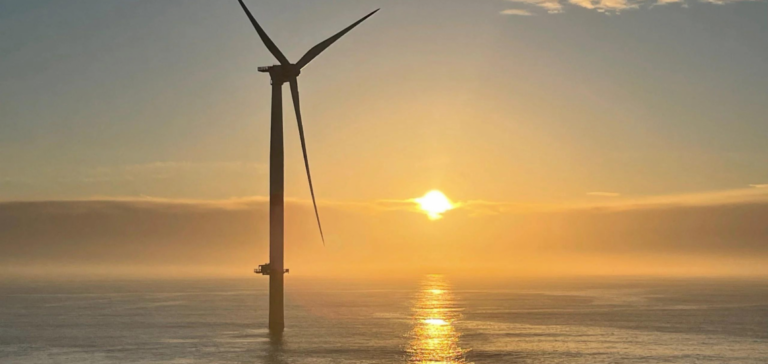The deployment of onshore wind power in France should further increase its delay this year, with the installation of new capacity far below the level needed to meet the country’s energy objectives, said Tuesday a report of the sector.
The second largest source of renewable electricity in France after hydroelectricity, wind power provided 36.8 terawatt hours (TWh) in 2021, or 7.7% of French consumption, according to the Wind Energy Observatory, produced annually by France Wind Energy (FEE) with CapGemini.
In 2021, 1,200 megawatts (MW), or 418 wind turbines, were installed, and in 2022 it will be about 1,350 MW: far from the 1,900 MW per year that it would take on average to meet the target, voted by Parliament, of 34 gigawatts (GW) in 2028.
To date, France has a capacity of just over 20 GW (about 9,000 wind turbines).
However, the year 2022 will have been marked by the opening of the first offshore wind farm, opposite Saint-Nazaire, with 480 MW to supply about 700,000 people, the equivalent of a little less than half of one of the most recent nuclear reactors. Two other marine parks are expected to enter into
production, in 2023 and late 2023-early 2024.
“At a time when France lacks electricity and must import it, it is imperative to accelerate,” said Michel Gioria, FEE’s general delegate, noting that only onshore wind, photovoltaic and biogas will be able to produce more energy in the very short term, before 2025.
In 2022 and 2023, the wind energy sector should also contractually pay back some 7.6 billion euros over the two years to the state, due to high market prices. If the trend continues, it will have repaid all the aid received since 2001, notes FEE.
Against the backdrop of an unprecedented energy crisis, the government issued a circular to prefects at the end of September asking them to speed up the processing of renewable energy applications, and a bill aimed at supporting the deployment of these infrastructures.
For the time being, the effect of the circular is not yet being measured for the 4.5 GW of projects at the end of the appraisal process and awaiting authorization, notes FEE.
The sector also stresses the “structural deficit of human resources in the State services to instruct projects”, which often exceed 2,000 pages.
At this stage, the 2023 draft budget provides for the financing of 15 agents, when a hundred are needed, underlines Mr. Gioria, for whom “this is not anecdotal: France is strong in defining objectives, but the implementation suffers from a lack of means.






















